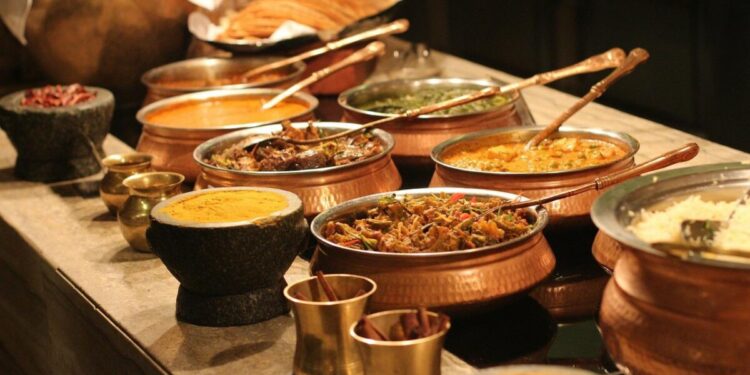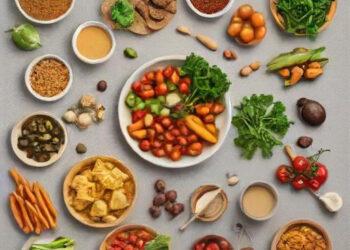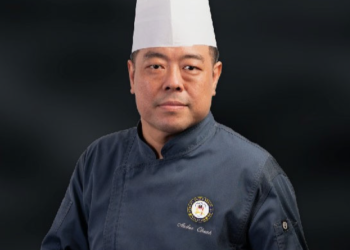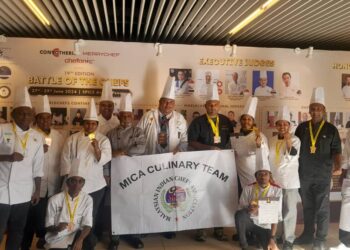Dr. S Nandei, CEO, TQS Global Management System
Cooking food is fun but left-over food can become difficult to handle, especially curries as they have shorter shelf lives than bread. Even though there are many people pondering over storing the leftover food, the common practice is to keep it for later use. In fact, what people are not aware of is the fact that cooked food lasts longer than uncooked ones. However, improper storage of food may change taste and flavour. Every food item has different properties and reacts differently to time. As far as curry is concerned – the best way is to freeze it at the right temperature.
Proper Storage Process For Quick Consumption
The leftover food, if meant to be consumed later the same day, should be refrigerated within two hours of holding at room temperature after cooking. Use the leftover curry as quickly as possible because the refrigerated food is likely to lose its flavour and nutrients. The standards require food to be cooled from 60°C to 21°C for a maximum of two hours and from 21°C to 5°C within a maximum period of four hours of cooking.
If you have cooked more food with the intention of consuming it later, freeze it at -18°C within two hours of cooking. This will reduce the chances of bacterial multiplication. It can be placed in an airtight container or food-grade plastic bag that can be sealed properly and refrigerated if meant for use after a couple of days. This food can last for a maximum of three to four days under such conditions. A good rule is to date your leftovers and not serve anything over four days. After that, there are chances that the curry develops mold and other drug-resistant spoilage organisms, looks slimy and smells bad. Since the bacteria doesn’t necessarily always change the taste, smell and colour of the food, you may not always be able to tell if food is spoilt. Therefore, in case of doubt, the curry must be discarded. There is always a risk and doubt of food poisoning due to long-term leftovers.
This food can last up to a year also if stored at this temperature without any temperature fluctuation. The storage in the fridge should be done in different containers to avoid contamination, also per serving portion size if meant for serving in bulk. It should be remembered, that cooling does not kill the bacteria in the food, only makes it dormant. Deep frozen curries will remain good for a long time, but the nutritional value might get affected. Before storing make sure that the curry is cooled evenly. Shallow containers can be used for this purpose. These containers should be clean and sterilised. To maintain hygiene while storing the curry, one must wash their hands nicely and then start the process of storage. This is also applicable to the cooking process.
The Link Between Cooking And Storing
The safety during storage largely depends upon the way food is been cooked. Inadequate cooking is a common cause of food poisoning. Cross-contamination from raw to cooked foods, such as from hands or utensils, can also cause food poisoning. Most foods, especially meat, poultry, fish and eggs should be cooked thoroughly to kill most types of food poisoning bacteria. Food should be cooked to an internal temperature of at least 75°C or hotter. Heating foods to this temperature kills most food poisoning bacteria. A food thermometer can be used to check the internal temperature of foods during the cooking process. A basic detection method to check for the core temperature in meat and poultry products is right through the centre that the pink meat should not be seen and juices must be clear, and for fish products, it must flake easily with a fork.
Take extra care when preparing recipes that contain raw eggs. Bacteria present on eggshells and inside the egg can contaminate the food and cause food poisoning. It is therefore mandatory for corporate kitchens, hospitality firms and manufacturing units to rinse the eggs in sanitising solutions and then use them. This kills all the spoilage and disease-causing organisms on it, hence, making food safer to store and consume. This is also mandatory in the case of vegetables to prepare curries.
When food is cooked, it should be eaten promptly, kept hotter than 60°C (which is the holding temperature of hot foods), or cooled, covered and stored in the fridge or freezer. Food poisoning bacteria grow more easily on high-risk foods than others which include vegetables, raw and cooked meat, poultry, and foods containing these like the curries. Special care is to be taken for such foods after preparation. They are to be kept out of the temperature danger zone i.e. outside 5-60°C.
If left in the temperature danger zone for up to 2 hours, should be reheated, refrigerated or consumed
If left for more than two hours, but less than four hours, should be heated and consumed immediately
Throw out any high-risk foods that have been left in the temperature danger zone for more than four hours.
When frozen curries have to be used for eating purposes, they must first be thawed inside the refrigerator or microwave and then heated at 75°C thoroughly. The thawed food must be heated within two hours to this temperature. This eliminates the chances of survival of any food poisoning organisms if present. However, the fungal toxins if present cannot be destroyed at even such high temperatures. So, it is better to check for any microbial growth before heating it again and if you are unsure about the food quality it is better to discard it.
Last but not the least, always remember the rule for food safety – “When in doubt, throw it out!”
(The views and opinions expressed in these articles are those of the author and do not necessarily reflect the official position of KitchenHerald.com or associate portals).







